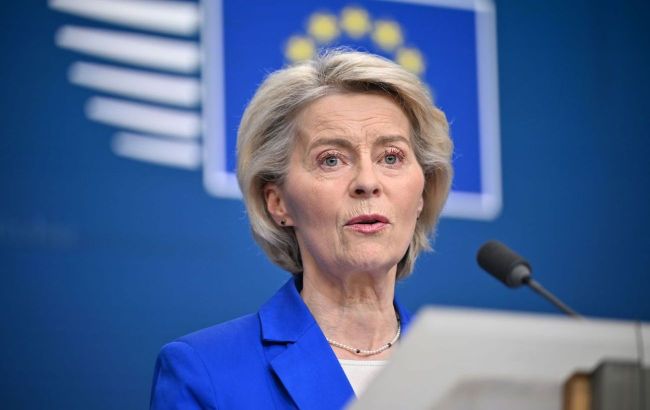Beyond reparations loan: EU proposes three options to support Ukraine financially
 Photo: Ursula von der Leyen (Getty Images)
Photo: Ursula von der Leyen (Getty Images)
The President of the European Commission, Ursula von der Leyen, has proposed three different options for European countries to provide financial assistance to Ukraine totaling €135.7 billion. A corresponding letter outlining these plans was sent to EU leaders, according to the Financial Times.
According to the document, Ukraine will need €135.7 billion over the next two years to counter Russian aggression. EU countries will have to secure the funds themselves if it is not possible to agree on a reparations loan using frozen Russian assets.
The President of the European Commission noted that these funds need to be secured by April 2026.
Von der Leyen outlined three main options in the letter. These include support financed by EU countries through grants, a limited regressive loan funded via borrowing on financial markets, and a limited regressive loan linked to the balances of immobilized assets.
The document states that, given the urgency of the situation, the varying complexity of the options, and the need to start disbursements by the second quarter of 2026, any chosen option could be designed as a temporary and time-limited solution.
The Commission President emphasized that the options can be combined or applied sequentially. They could "serve as interim solutions" until the adoption of a new long-term budget in 2028, which would guarantee EU-financed loans.
Belgium, Hungary, and Slovakia do not support providing Ukraine with a loan using frozen Russian assets.
Reparations loan for Ukraine
Ukraine’s international partners are seeking ways to address the country’s budget deficit. One option currently under active discussion is the creation of a so-called reparations loan, which would allow frozen Russian assets to be used to support Ukraine.
Ukrainian President Volodymyr Zelenskyy has urged Europe to use Russian assets and overcome the disagreements that have arisen.
Despite delays in adopting the relevant decisions, there are currently no critical risks to the state’s finances, as the budgetary needs for the current year have already been secured.

